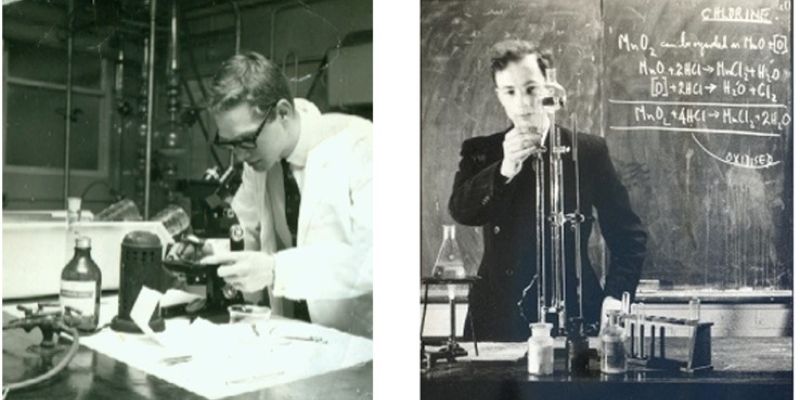
Clinical pharmacologist Craig Jordan died in June 2024, but his research into targeted cancer treatment and his support for Leeds students continue to change lives today.
It is with great sadness that the University of Leeds learned of the death of Craig Jordan (Pharmacy and Pharmacology 1969, DSc 1985, PhD 1973, Hon DMed 2001) in June 2024 at the age of 76.
Craig’s research into selective receptor modulators – most notably tamoxifen – opened new routes to the treatment and prevention of breast cancer. His discovery triggered a series of breakthroughs in selective nuclear receptor modulators used to treat major diseases and conditions, including endometrial cancer, osteoporosis and menopausal symptoms.
Nearly 40 years on from Craig’s discovery, tamoxifen continues to be a key medication for the treatment and prevention of breast cancer.

Craig Jordan made key breakthroughs whilst working at Leeds
Craig was born in Texas with dual US and UK nationality, and moved to Bramhall, Cheshire as a child. He moved to Leeds to study pharmacology in 1966.
He received a scholarship from the Medical Research Council to undertake a PhD at Leeds. It was here that his lifelong fascination with oestrogen receptors was born. He showed that tamoxifen could stop tumours growing by blocking the female hormone oestrogen from locking onto cells in the breast at specific sites called oestrogen receptors.
However, his theories were met with scepticism from colleagues at a time when chemotherapy was perceived as the cure to all cancers
“It was a fight to get my research rationale accepted,” Craig told the Royal Medical Society in 2022. “There was a one-dimensional idea that tamoxifen should be given as a short-term treatment. I’d go to meetings to talk about tamoxifen and people would ask how I knew it worked when it didn’t have any side effects.
“My approach was proven when the results of an Edinburgh clinical trial, published by The Lancet in 1987, showed that long-term tamoxifen treatment for five years kept people alive.”
Professor Jordan went on to hold a number of positions in both the US and UK – including as a lecturer at Leeds, and as Chairman of the Scientific Advisory Board at Leeds Institute of Molecular Medicine from 2008 to 2011.
He was honoured with a number of notable awards during his lifetime, including being made a Companion of the Order of St Michael and St George in the 2019 Birthday Honours for services to women's health by Queen Elizabeth II. He was awarded an honorary degree by the University of Leeds in 2001, and honorary fellowship by the Royal Society for Medicine in 2008.
Craig was committed to giving future generations the opportunity to make further scientific breakthroughs. As well as providing scholarships to students, Craig endowed a number of prizes at the University, including the Jordan Prize in Medicinal Chemistry for the top graduating student of Medicinal Chemistry and the Craig Jordan/PR Radford Prize, awarded annually to the best PhD student thesis in the Astbury Centre.
“Leeds meant opportunity to me,” Craig said in an interview with the University in 2013. “It allowed me to grow, to blossom, and to do the things that I wanted to do. All the elements that became my life were founded at Leeds.
“I’m giving back so people can have the courage to move forward with confidence.”